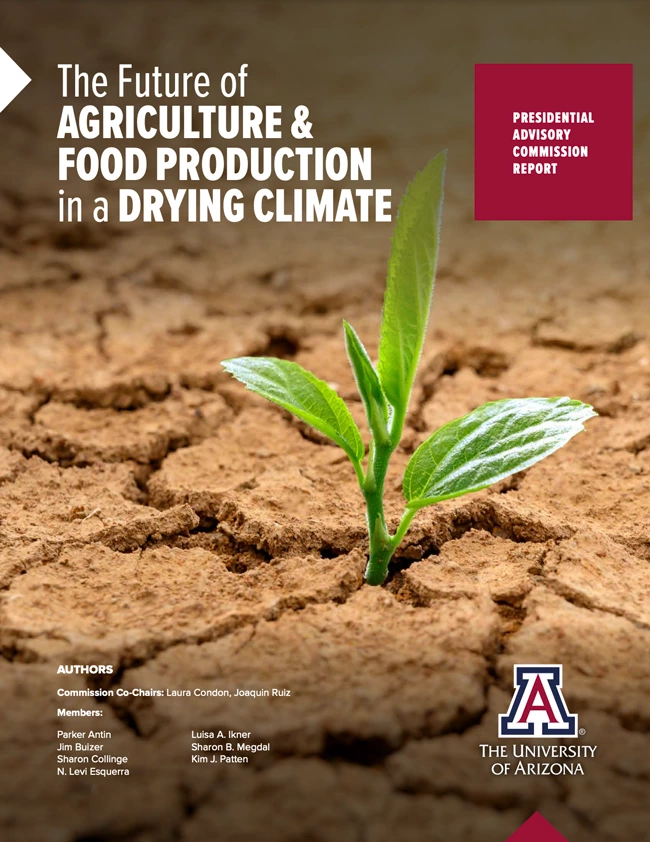
Located in one of the most arid portions of the country, Arizona’s food production systems are increasingly threatened by a drying climate, and there is growing concern that this trend poses an existential threat to food production in Arizona. In response to this urgent issue, UArizona President Dr. Robert C. Robbins created the Presidential Advisory Commission on the Future of Agriculture & Food Production in a Drying Climate. The Commission was tasked with assessing critical threats to agriculture and food production, identifying the most promising solutions, and determining how UArizona can best impact the future. This report reflects the Commission’s study and information gathering through listening sessions and surveys of community members across the University and the state of Arizona.
Threats: Sustainably producing food with decreasing water supplies in an already arid climate is a significant challenge. Decreased surface and groundwater supplies pose direct challenges to growing food with less water. Local threats are amplified by systemic threats to food production systems such as national and global food system disruptions and decreases in Colorado River allocations. These challenges contribute to socioeconomic and cultural concerns including the selloff of agricultural land and loss of the agricultural workforce. Furthermore, uncertain and inflexible policies create additional impediments to adaptation that hinder long-term planning and holistic solutions.
Solutions: Given the complexity and far-reaching nature of the threats, any lasting solution must be multifaceted. Technical solutions like developing new heat- and drought-tolerant crops or improving soil moisture retention can sustain production with limited resources. However, technical solutions can only partially address the challenges. Policy and programmatic solutions to facilitate system-level changes and accelerate the application of technical solutions are greatly needed. Finally, no solution will be effective without human solutions that support cooperative decision making, bridge the gap from research to application, and support the next generation of farmers and ranchers.
UArizona Resources and Expertise: As Arizona’s land-grant university, UArizona is uniquely positioned to facilitate the development and implementation of solutions. UArizona has core strengths in food, water, energy, and community engagement. Through Cooperative Extension and the Arizona Experiment Station, UArizona already works directly with the agricultural community and operates a state-of-the-art network of laboratories, fields, and greenhouses. UArizona also has vast expertise in water issues and is ranked No. 2 in the U.S. and No. 6 in the world for water resources research.

